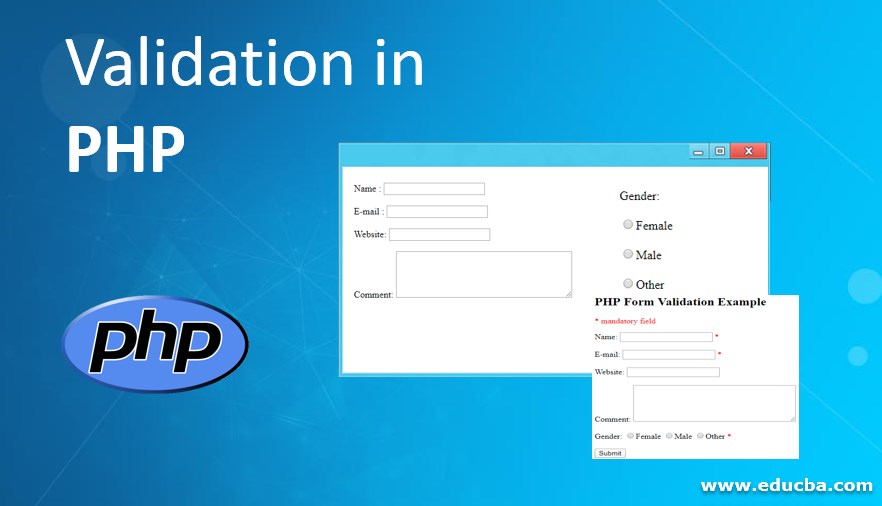Validation in PHP

In PHP, validation refers to the process of checking user input or data to ensure that it meets certain criteria before it is processed or stored. Validation is a crucial step in web development to enhance security, data integrity, and overall user experience. It helps prevent common issues like SQL injection, cross-site scripting (XSS), and other security vulnerabilities, as well as ensures that the data conforms to the expected format.
Here are some common types of validation in PHP:
Form Validation: When users submit forms on a website, PHP validation is often used to check that the submitted data meets the required criteria. This includes checking for the presence of required fields, validating email addresses, ensuring numeric values, and more.
$username = $_POST['username'];
// Check if the username is not empty
if (empty($username)) {
echo "Username is required.";
} else {
// Perform further validation or process the data
}Input Validation: Validation is crucial when dealing with user input, especially when that input is used in database queries. Input validation helps prevent SQL injection attacks by ensuring that user input doesn't contain malicious SQL code.
$user_input = $_GET['search'];
// Use prepared statements to prevent SQL injection
$stmt = $pdo->prepare("SELECT * FROM users WHERE username = ?");
$stmt->execute([$user_input]);Data Type Validation: Checking the data type of variables is essential to ensure that they are used in the correct context. For example, if you expect a variable to be an integer, you can use functions like is_int() or filter_var() to validate it.
$user_age = $_POST['age'];
// Check if $user_age is an integer
if (!is_int($user_age)) {
echo "Age must be a valid number.";
} else {
// Perform further validation or processing
}Email Validation: Verifying the format of email addresses is a common validation task. PHP provides functions like filter_var() with the FILTER_VALIDATE_EMAIL filter for this purpose.
$user_email = $_POST['email'];
// Check if $user_email is a valid email address
if (!filter_var($user_email, FILTER_VALIDATE_EMAIL)) {
echo "Invalid email address.";
} else {
// Perform further validation or processing
}Custom Validation Rules: Depending on your application's requirements, you might need to define custom validation rules to ensure that data meets specific criteria unique to your use case.
$password = $_POST['password'];
// Custom validation: Password must be at least 8 characters long
if (strlen($password) < 8) {
echo "Password must be at least 8 characters long.";
} else {
// Perform further validation or processing
}
Validation helps improve the robustness and security of your PHP applications by ensuring that the data they receive is valid and safe to use. It is an essential aspect of building reliable and secure web applications.
Thank you.